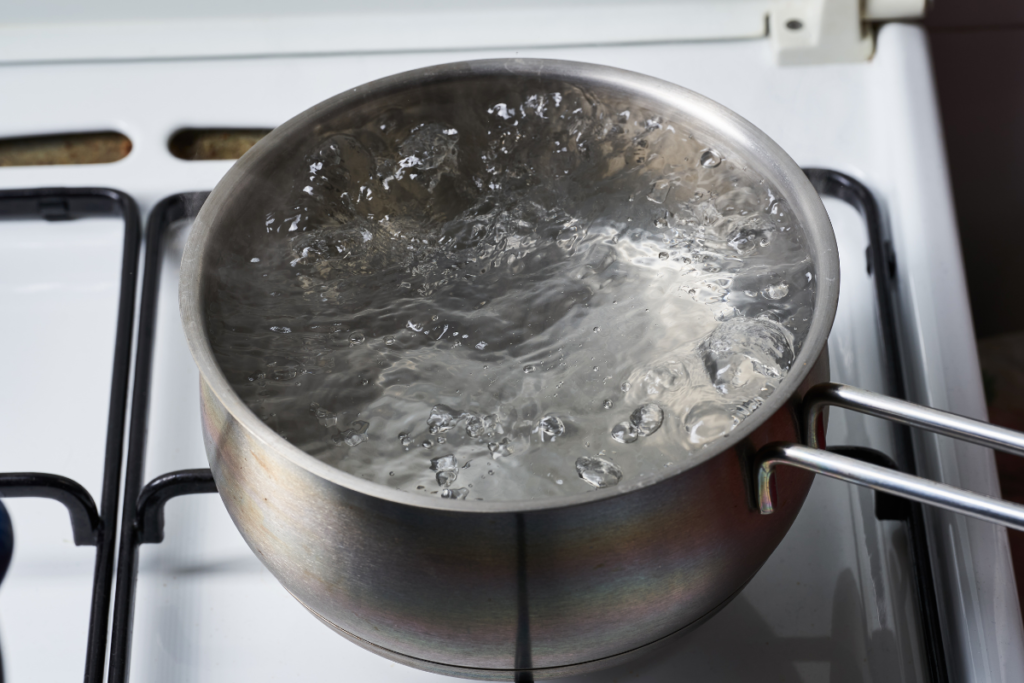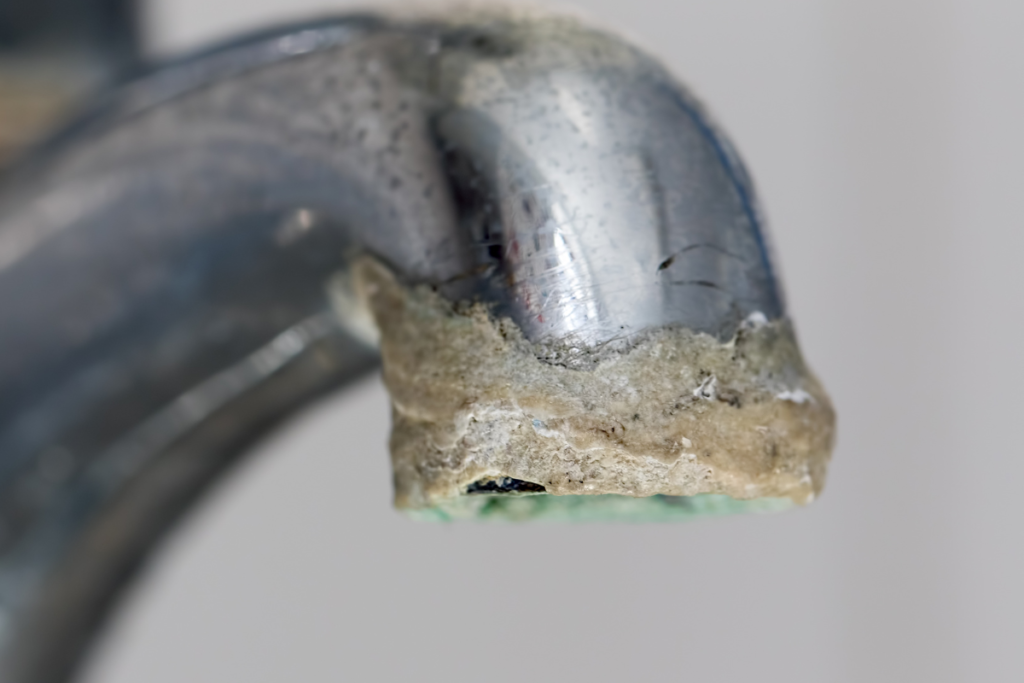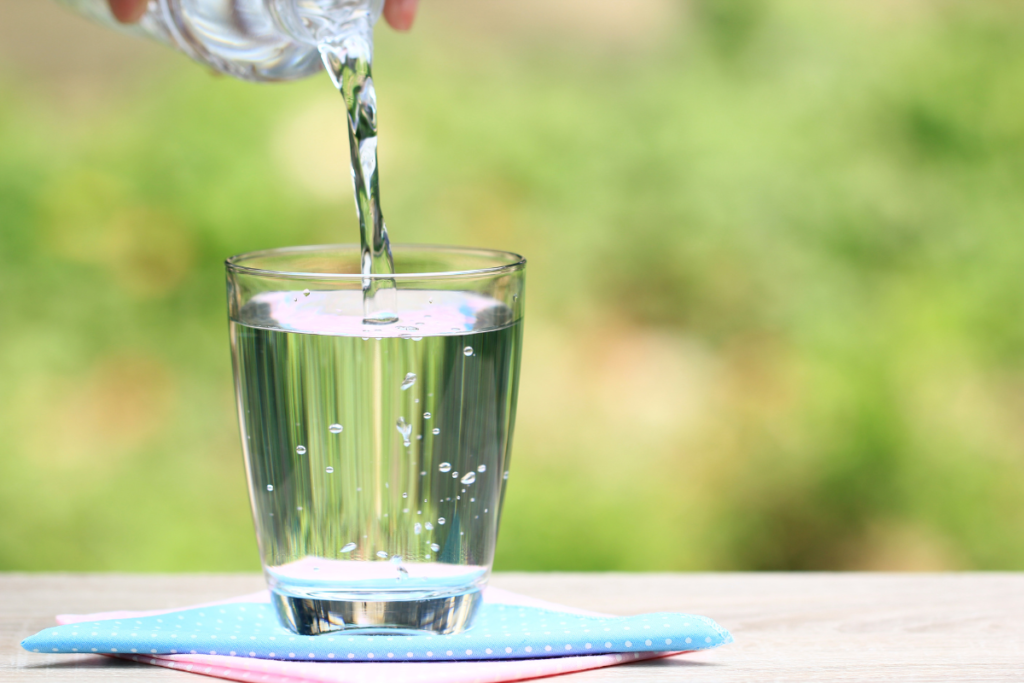Does a Water Filtration System Soften Water (Plus 6 Ways That Really Work)
Water quality is just as important as its availability. Water filtration is the de facto choice when you want to get rid of pathogens and contaminants, but when you want to make hard water soft, water softeners are right up your alley. Does a water filtration system soften water, or do you need both?
Water filtration systems can help soften water, but it isn’t their primary function. Charcoal-based or reverse-osmosis filters will remove some of the calcium, magnesium, and other minerals in water but not as much as a dedicated water softener. The best water filtration system will utilize a water softener in addition to a multi-stage filter.
Read on to learn more about how to make hard water soft, how well reverse osmosis filters work for this purpose, and some ways to soften your water naturally!
Does a water filtration system soften water?
Water filtration systems – especially those designed for residential use – are designed to keep sediment, harsh chemicals, and unpleasant smells out of your water. These systems can take the form of whole house systems, water-line-only filters, attachments directly on your faucet, or even stand-alone filters like a Brita or Berkey unit. While these systems are ideal for removing impurities, they are not necessarily ideal for removing the minerals that result in hard water.
While water filtration systems can reduce the hardness of water, they are not designed to soften water.
Any softening of water by water filtration systems is purely incidental and shouldn’t be relied upon as an expected function of the system.
How do you make hard water soft?
Hard water may be clean and safe, but that doesn’t mean it’s good for everything.
Hard water does not lather easily with soap resulting in wasted soap and improperly cleaned dishes and laundry. Drinking hard water can also result in the discoloration of teeth. When used to water plants, the hard water can also make the soil more alkaline, resulting in the plants’ wilting and drying.
On the industrial front, hard water can also be quite a pain. It usually leads to the formation of deposits on the inner walls of industrial boilerplates, thus creating an insulating effect that ultimately leads to increased energy use. Softening hard water is beneficial for both domestic and industrial use.
Slaked lime (calcium hydroxide), ammonia, borax (sodium borate), and tri-sodium phosphate together with sodium carbonate (soda ash) are the chemicals usually added to hard water to make it soft by forming insoluble precipitates. When soda-lime is used, the water must be allowed to sediment before being filtered to remove the precipitates.
The addition of chemicals is mostly applicable in small-scale or domestic situations.
Ion exchange is a large-scale industrial chemical process of softening hard water in which lime is added just enough to precipitate calcium carbonate and magnesium hydroxide before adding sodium carbonate to remove any calcium salts left.
In this case, water is passed through columns of a natural or synthetic glue that exchanges sodium ions with calcium and magnesium ions.
The column is then restored by slowly passing concentrated sodium chloride (common salt) solution through it to displace the hardness-causing ions.
Domestic water softeners also work similarly and may contain silicate or other ion-exchange resins in a tank directly linked to the water source.
Does Borax soften water?
Borax is a mineral used for cleaning around the home. It’s not as popular in its raw form now as it once was, but it’s still commonly found mixed into other cleaners.
Borax is normally to soften water when washing laundry and is included as a component of many soaps, detergents, and cleaners. It acts as a pH buffer due to its high pH value.
When Borax is added to water, the water’s pH changes to an almost neutral pH of 8, which is slightly alkaline and ideal for cleaning. It then keeps it at that pH, even when soaps and detergents are added, ensuring that clothes come out of the laundry looking much cleaner.
It also increases the stain-removal ability of the detergents by helping to break down acidic and greasy stains.
6 ways to soften water naturally
Adding a water softener to your home’s water line is the best way to ensure that all the water entering your home is soft without taking any extra steps at the time of use.
However, they are fairly expensive and not always necessary as not all water needs to be softened.

To soften limited amounts of water naturally, you may want to try one of these 6 methods:
- Installing an ion-exchange softener can help reduce remove chlorine, lead, and foul smells. More natural softeners use clay instead of resin.
- Boiling hard water and allowing it to cool removes calcium which gets deposited as sediment on the water and can then be filtered out.
- Adding baking soda to the water when cooking or in the bathwater will help lower its pH, making it feel smoother on the skin.
- Adding washing soda (sodium carbonate) to laundry water temporarily softens it and helps remove dirt from fabric making clothes cleaner.
- Using driftwood to release natural water-softening tannins.
- Using peat moss which naturally releases carboxylic acid and tanning, thus softening, filtering, and purifying hard water
What’s the difference between a water filter and a water softener?
While both systems affect the quality of your water, they don’t perform the same functions and aren’t interchangeable.
A water filter removed contaminants from the water supply. This may include physical debris, harmful chemicals, and unpleasant smells.
If you’re on a municipal water system in the United States, your water undergoes several stages of treatment to ensure it is safe to drink, but many people add an additional layer of filtration to their home water.
They filter out many harmful chemicals, but do water filters remove lead?
A water softener contains resin beads that attract hard water minerals as the water passes through the tank. The minerals are removed from the water, leaving soft water.
While some municipal treatments may reduce the hardness of water, safe water is the priority – not soft water.
Can you use a water filter with a water softener?
Water filters were primarily designed to filter water – even though some of them do a pretty good job of softening hard water.
You do not need a water softener if you have a soft water source. But if you have a hard water source, then it might be prudent to use a water softener. Water filtration systems are different from water softeners and can be used together.
In an ideal scenario, a system that does both would be great. And even though a 3-stage RO system can do this pretty well, the lifespan of the filtration membrane will be greatly reduced greatly, which will mean changing it more frequently.
To avoid this, it is a good idea to use both a water softener and a water filter – especially if you have hard water.
Can water filter cartridges be recycled?
Does an RO system soften water?
A Reverse Osmosis System employs a natural process of reversing the water flow through osmosis from a highly concentrated solution to a dilute one across semi-porous membranes.
According to the Centre for Disease Control and Prevention (CDC), filters with very minute pores (approximately 0.0001 micrometers in diameter) stationed before and after the RO membranes make them highly effective for removing protozoa, bacteria, viruses, and common chemical contaminants such as metal ions and dissolved salts.
There are, of course, some things that reverse osmosis systems leave behind.
RO systems do remove hardness but only in small amounts since their membrane can become permanently blocked up with time. The membranes can, however, be unclogged using caustic chemicals. Another workaround would be to use a pre-filtration stage to protect the membrane.
This is where a triple-filtration RO system comes in handy.
A reverse osmosis system can help soften your water, but then the filtration membrane will wear out more quickly. The only solution is to have a pre-filtration stage, as in 3-stage RO systems.
Alternatively, you can just use a water softener together with your water filter – the two systems are different and can work together without any problem.
What is hard water?
We’ve talked about it a lot already, but let’s look at exactly what hard water is.
Hard water is water with significant amounts of the chemicals calcium, magnesium, and iron in it.
Soft water, on the other hand, doesn’t have these chemicals.
Fun fact: Most bottle water is either spring water or purified water. Spring water is slightly hard while purified water has undergone reverse osmosis. FIJI water, however, is naturally soft.
How do you know if you have hard water?
Trying to decide if you need a water softener in addition to your filter? The first step is to find out if you actually have hard water.

To determine if you have hard water, try one of the following methods:
- Examine your clean dishes – After washing your dishes, do they exactly look clean? Hard water will leave a spotty, filmy residue.
- Check your faucets – The additional minerals in your water will build up around faucets, drains, and showerheads, leaving a white crust where the water has dried.
- Test your soap – Hard water makes it difficult to create a good later. There are several ways to test this, but the easiest is to grab an empty water bottle, fill it about 1/3 full of tap water, and add a couple of drops of dish soap. Shake vigorously. The bottle should fill with big bubbles; hard water will leave you with more milky water than fluffy bubbles.
- Do some research – If you’re on municipal water, chances are there’s a recent hard water test for your area on file. You may have to call your local utility, but it should be updated yearly.
- Test your water – If you want to get scientific, pick up a test kit and find out exactly how hard your home water is.
You can also reference this interactive map to find out the average water hardness in your state or locale.
Which is better – water softener or water filter?
If you’re looking to improve the quality of water in your home, you will probably want to install a water filtration system, a water softener, or both.

Whether a water softener or a water filter is better depends on your specific needs. In many cases, you will want to use a water softener in conjunction with a water filter. This will increase the quality of your water and extend the lifespan of both.
For example, I live in an area that already has soft water (only 21ppm), but my tap water smells like pool water if I don’t do something about it. In my case, a great water filtration system is a solid investment, but a water softener is a waste of money.
Final thoughts on softening water with a filter
Water filters may soften your water, but it’s not a good idea to depend on them for that purpose.
Find out what type of water you have in your area and install a filter or softener accordingly:
- If your water has a chemical smell or an off taste, install a filter.
- If your water prevents your soap from lathering properly, install a softener.
- If your water has both a chemical smell or off taste and doesn’t lather properly, install both a filter and a softener.
If you’re on well water, you’ll definitely need a filtration system.
Let Us Know How We’re Doing!
Did this expertly prepared resource answer your question?
Do you have another question about home maintenance, home improvement projects, home appliance repair, or something else?
Get more information, send in questions and keep the discussion going by contacting the I’ll Just Fix It Myself company customer service team at at 1-800-928-1490 or Email us at [email protected]
